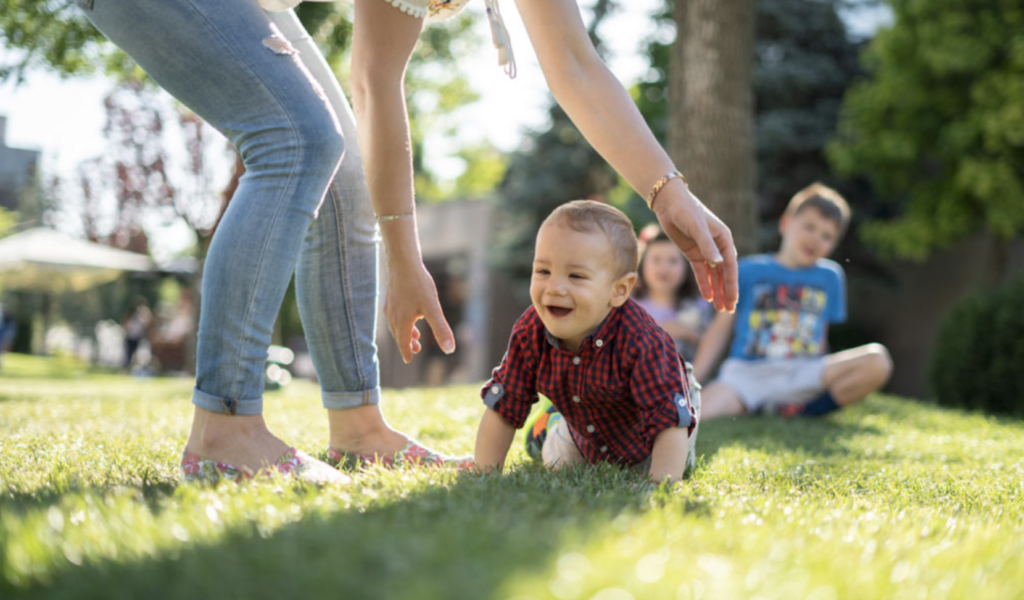1. Look for ways to be physically distant but socially connected.
Our family’s good intentions often work best when tied to routine. As a result, we are trying to write or draw a piece of mail to send to someone we love each morning and FaceTime someone we love each evening. We recently mailed paper “hugs” to elderly relatives by tracing the top half of our bodies onto a large sheet of paper, coloring, and cutting it out. If you’re not sure who to write to, consider sending mail to a local nursing home.
2. Make something together.
Make a list of recipes you’d like to try and collect them into a cookbook. Build a fort. Join the 30 Day Lego Challenge. Complete a huge puzzle. Dye Easter Eggs or build a spring gingerbread house out of icing, graham crackers, and candy. Take a free video art lesson from Art Underground Downtown or Mo Willems. Pull out the sewing machine, playdough, crochet needles, or a hammer and some nails. Bake and decorate cookies. Cut out pictures from magazines and make a collage. Create your own comic strip or a family scrapbook. Anything to tap into that creative energy as your family hangs out at home.
3. Get outside and enjoy nature.
Stock up on sidewalk chalk, bubbles, and jump ropes. Grill/use a fire pit and have as many picnics as possible. Have a family Easter Egg hunt in the backyard or invite your neighborhood to have one by hanging paper eggs in windows for children to find and count. Plant a garden. Keep a bird or squirrel feeder stocked in your yard. Bring nature into your home with a butterfly garden or ant farm. Grab a science notebook and write/draw what you notice about all of these things.
4. Move your body.
Endorphins are beneficial to all of us, especially in times of stress. Go for a hike at a State Park. Play catch or kick a soccer ball. Ride a scooter or bike and create a tally mark total of how many laps you make around the neighborhood. Make a list of objects and go on a nature scavenger hunt. If it’s raining, have a dance party or try an online workout together, like Cosmic Yoga.
5. Care for the spiritual needs of your family.
Worship together on Sundays using the Livestream and Crossing Kids virtual lessons. Check out this how-to guide to get the most out of online worship. If you have elementary or middle school students, print off one of these guides to help your child during the sermon. Use this extended time together as an opportunity to try a family devotional like our free Resurrection Tree e-book for preschool and elementary families or watch and discuss these daily devotionals or 10 Minute Bible Talks together if you have older kids. You can also try this great podcast for preschool and elementary kids.
Pray for each other, our city, our country, and our world. Brainstorm ways to pray for the outbreak and write them on individual scraps of paper. Pull one request out each night at dinner during a family prayer time.
6. Read together.
There are countless and no doubt very beneficial academic resources available for families to think about how to meet the educational needs of their kids now that schools are closed. If you feel paralyzed and overwhelmed by them, just read to and with your child. Pick a favorite author (E.B. White, Roald Dahl, Kate Dicamillo, etc.) or series (The Chronicles of Narnia, Harry Potter, Percy Jackson, etc.) Use this as an opportunity to check out books that share perspectives that might be different than your own. Have your child choose a topic of interest and research it. Utilize online and audiobook resources from the public library and Columbia Public Schools.
7. Love the real people in your home and bear with one another in love.
Recognize that this is a stressful time that requires adjustment and flexibility for everyone in your family. Give grace to your children, give grace to yourself. All of us are navigating uncharted territory. Shake off the grouchies by creating a “Gratitude Wall” where you can list things you are thankful for, or by memorizing a Bible passage like Colossians 3:12-13 or Ephesians 4:32 as a family. Have realistic, developmentally appropriate expectations that reflect the people in your home, not someone else’s (or someone else’s Instagram feed). Know when to take a news, social media, or post-like-this break (sometimes the last thing we need is one more idea.)
8. Maximize TV and Movie time.
Make a list of films or a TV series you want to enjoy together. Pretend to have a movie theater and create “Now Showing” posters. Pop popcorn and construct comfy spots to snuggle. Give films ratings or encourage your kids to write a review. Use your television intentionally as a tool for shared experiences, connection, and conversation, not just mindless binging.
9. Play
Gather every block or magna-tile in your home and build a city or a zoo. Have a tea party with stuffed animals. Dump kinetic sand or dried beans in a tub with construction vehicles. Grab a favorite board game or learn a new card game. Invest in a marble run or setup your own bowling alley with disposable cups and a ball. Have fun together!
10. Work on a life skill.
What life skills could you teach to your kids? At our house, we’re working on potty training, riding a bike, writing our name, and unloading the dishwasher. If you have older kids, it might mean making a meal independently, mowing the grass, sewing a button, or learning how to do the laundry. Look for ways to help your children learn.
Looking for more suggestions and resources for how to respond to the Coronavirus outbreak? Check out The Crossing’s webpage for regularly updated information and tools.
